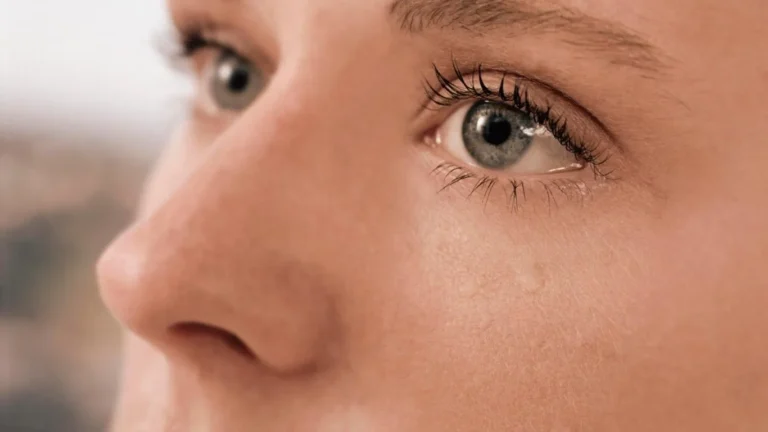Can Meditation Help with GERD Symptoms? Find Out How It Can Relieve Discomfort
As a Medical Assistant in a Gastroenterology Clinic, I’ve seen firsthand how frustrating it can be to deal with GERD (Gastroesophageal Reflux Disease) symptoms. The constant heartburn, the acid reflux, the discomfort after eating – it can feel like an endless cycle. But what if there was a simple, natural way to manage GERD symptoms that didn’t involve popping another pill or relying on medication with potential side effects? Enter meditation. I know, it sounds a bit unconventional, but bear with me. You might be surprised by the science behind how meditation can help reduce GERD symptoms and improve overall well-being. In this article, we’re going to dive deep into this topic and explore how incorporating meditation into your daily routine could make a real difference in managing GERD.
What is GERD, and How Does It Affect You?

Before we get into how meditation can help, let’s quickly review what GERD is. GERD stands for Gastroesophageal Reflux Disease, a condition where stomach acid or bile irritates the food pipe lining. This happens when the lower esophageal sphincter (LES), the muscle that separates the stomach from the esophagus, weakens or relaxes abnormally. As a result, stomach acid can flow back up into the esophagus, causing symptoms like heartburn, chest pain, regurgitation, and even a sore throat.
If you’re reading this and thinking, “Yep, that sounds like me,” you’re not alone. GERD is incredibly common, affecting millions of people worldwide. But the impact of GERD extends beyond just physical symptoms; it can also affect your emotional and mental health. The discomfort of constant reflux can be exhausting, and it’s easy to feel frustrated or even depressed after dealing with these symptoms day after day. This is where meditation might come in as a potential game-changer.
Can Meditation Help with GERD Symptoms?

Now, let’s get to the real question: can meditation help with GERD symptoms? The short answer is yes, it can. But don’t just take my word for it – there’s science to back it up. Meditation has been shown to reduce stress, which plays a huge role in triggering GERD flare-ups. And since stress is often a major factor in aggravating GERD symptoms, finding ways to manage it can be incredibly beneficial.
Studies have demonstrated that mindfulness and relaxation techniques, like meditation, can lower cortisol levels (the body’s stress hormone) and reduce overall stress. This, in turn, can lead to a decrease in the severity of GERD symptoms. The mind-body connection is a powerful thing, and by calming your mind through meditation, you can help reduce the physical symptoms of GERD that arise when stress levels get too high.
The Stress-GERD Connection
Stress and GERD have a complicated relationship. When you’re stressed, your body releases more acid into your stomach, which can increase the likelihood of acid reflux. Stress can also affect how well your digestive system functions, leading to delayed gastric emptying or an increased likelihood of the LES not functioning properly. In a nutshell, stress makes GERD worse, and GERD, in turn, can make you feel more stressed as you deal with those uncomfortable symptoms.
So, how can meditation help break this cycle? Meditation is a powerful tool for managing stress. When you meditate, your body enters a relaxed state, which lowers your heart rate, reduces blood pressure, and encourages your digestive system to function more efficiently. By regularly practicing meditation, you can train your body to better handle stress, which could potentially reduce the frequency and severity of GERD flare-ups.
Types of Meditation That May Help with GERD
There are several types of meditation practices that may be helpful in managing GERD symptoms. Let’s take a look at a few that have been shown to reduce stress and promote relaxation:
- Mindfulness Meditation: This practice involves paying attention to the present moment without judgment. It helps you become more aware of your thoughts and feelings, which can lead to better stress management. Mindfulness meditation has been shown to lower cortisol levels and improve emotional well-being, making it a great option for GERD sufferers.
- Guided Meditation: If you’re new to meditation, guided sessions can be an excellent way to get started. In these sessions, an instructor leads you through the meditation process, providing calming instructions that help you relax. Guided meditation can be particularly helpful for those who struggle to quiet their minds on their own.
- Breathing Exercises: Deep breathing exercises are a form of meditation that can be done anywhere, anytime. By focusing on slow, deep breaths, you can activate your body’s relaxation response, which helps reduce stress. This can be particularly beneficial if you’re experiencing a GERD flare-up and need to calm down quickly.
How Long Does It Take to See Results?

One question I often get asked is how long it takes to see results from meditation. Unfortunately, there’s no one-size-fits-all answer, as everyone’s experience is different. However, many people start to notice improvements in their stress levels and overall well-being after just a few weeks of consistent meditation practice. Of course, the impact on GERD symptoms may take longer, but with regular practice, many individuals report a reduction in the frequency and intensity of their reflux symptoms over time.
It’s also important to remember that meditation is not a quick fix for GERD. It’s a long-term strategy that can complement other treatments, such as dietary changes or medication. The key is consistency – the more you meditate, the more likely you are to see positive results. So, if you’re ready to give meditation a try, don’t get discouraged if you don’t see immediate relief. Stick with it, and you’ll likely start to experience the benefits over time.
In the next section, we’ll dive deeper into how to incorporate meditation into your daily routine and offer some practical tips for making it a habit that sticks. Stay tuned!
How to Get Started with Meditation for GERD Relief

If you’re ready to give meditation a try for managing your GERD symptoms, you don’t need to jump into anything too complicated. The beauty of meditation is that it’s flexible and adaptable, meaning you can tailor it to suit your personal preferences and lifestyle. Whether you’re a beginner or someone with experience in mindfulness practices, there’s a meditation technique that can work for you.
From my time spent working with patients in the gastroenterology clinic, I’ve seen how sometimes the hardest part isn’t understanding the benefits of meditation, but simply finding the time and space to practice it. Life gets busy, and GERD flare-ups can be a constant reminder of how overwhelming daily stress can feel. But what I’ve found is that even a short amount of meditation—around 10-15 minutes a day—can have a positive impact over time.
Setting the Right Environment for Meditation
Creating a peaceful space where you can meditate is an important step toward finding relief. While it’s not strictly necessary to meditate in complete silence, a calm and quiet environment is key to reducing distractions and promoting relaxation.
Personally, I like to meditate in the morning before my day starts, when everything is still relatively quiet. If you’re in a busy household or a noisy environment, consider using noise-canceling headphones or playing soft, calming music in the background to help you focus.
In the clinic, I often recommended to patients that they find a spot where they can sit comfortably—whether that’s in a chair, on a cushion, or even lying down. The goal is to be comfortable enough that your body can relax and you can focus on your breathing without any discomfort. Once you have your space ready, you’re all set to begin your practice.
Simple Breathing Exercises to Reduce GERD Symptoms
If you’re just starting out, breathing exercises can be an easy and effective way to introduce meditation into your routine. One of the best techniques to try is diaphragmatic breathing, also known as abdominal breathing. This type of breathing involves taking deep, slow breaths into your diaphragm, which helps activate the parasympathetic nervous system (the body’s “rest and digest” state), and can reduce overall stress levels.
To practice diaphragmatic breathing, follow these steps:
- Find a comfortable position—sitting, lying down, or even standing.
- Place one hand on your chest and the other on your abdomen.
- Slowly inhale through your nose for a count of four, allowing your abdomen to rise (your chest should remain relatively still).
- Exhale slowly through your mouth for a count of four, allowing your abdomen to fall.
- Repeat for 5-10 minutes, focusing on the rise and fall of your belly with each breath.
When you’re feeling stressed or experiencing GERD symptoms, diaphragmatic breathing can quickly help you regain control over your body’s reaction. It helps to lower heart rate, reduce muscle tension, and calm the nervous system—all of which can make a noticeable difference in how your body handles stress and discomfort.
The Role of Mindfulness in Managing GERD

Another fantastic meditation practice is mindfulness, which focuses on being present and aware of the current moment. Mindfulness can be incredibly beneficial for those with GERD because it helps reduce the mental clutter that contributes to stress. When we are constantly thinking about the past or worrying about the future, it can trigger or worsen GERD symptoms. Mindfulness teaches us to focus on the present, which in turn helps reduce anxiety and stress, allowing your body to function more efficiently.
Mindfulness meditation can take many forms, but the basic concept remains the same: paying attention to your thoughts, feelings, and bodily sensations without judgment. For GERD sufferers, this might mean paying attention to how your stomach feels after meals, noticing any discomfort, but without getting anxious or stressed about it. In the long run, this practice can help change your emotional response to GERD symptoms, making them less overwhelming.
How to Practice Mindfulness Meditation
Here’s a simple mindfulness meditation technique that you can try at home:
- Find a quiet, comfortable place to sit where you won’t be disturbed.
- Close your eyes and take a few deep breaths to center yourself.
- Focus on your breath, noticing the sensation of air entering and leaving your nostrils, or the rise and fall of your chest or abdomen as you breathe.
- As thoughts arise, gently acknowledge them without judgment and let them go. Return your focus to your breath.
- Start with 5 minutes and gradually work your way up to 15 or 20 minutes as you get more comfortable.
The beauty of mindfulness meditation is that it’s all about bringing your awareness to the present moment, without trying to change anything. For GERD patients, this can help you create a healthier relationship with your symptoms, allowing you to respond with less stress and more calmness. Plus, the practice of mindfulness can become a tool you use when you’re feeling a flare-up coming on, giving you something to focus on that isn’t related to the discomfort you’re experiencing.
Additional Tips to Enhance Your Meditation Practice

Once you’ve gotten into the rhythm of your meditation practice, there are a few additional tips that can help enhance its effectiveness for managing GERD:
- Consistency is key: Like any new habit, the more regularly you practice meditation, the better the results. Aim for daily practice, even if it’s just for a few minutes a day.
- Combine with lifestyle changes: Meditation works best when paired with other healthy habits, such as eating smaller, more frequent meals, avoiding trigger foods, and staying upright after eating.
- Be patient: Meditation is not a quick fix, and it may take time before you start noticing significant changes in your GERD symptoms. But with consistency, you may find relief in ways you didn’t expect.
- Explore guided meditation: If you’re new to meditation or struggle with focusing, guided meditation can be a helpful way to stay on track. There are plenty of apps and YouTube channels that offer free guided sessions tailored to stress relief and digestive health.
Ultimately, the goal of meditation for GERD relief is not to replace traditional treatments, but rather to complement them. By reducing stress and promoting relaxation, meditation can help manage GERD symptoms in a way that is natural, sustainable, and low-cost. In the next section, we’ll explore more advanced meditation techniques and dive into other ways you can support your body’s digestive health. Stay tuned!
Advanced Meditation Techniques for GERD Relief

As you become more familiar with meditation and start to experience some relief from GERD symptoms, you might be wondering if there are more advanced techniques that can take your practice to the next level. The good news is, there are! Once you’ve mastered basic breathing and mindfulness meditation, you can begin to explore more specialized techniques that offer even deeper relaxation and stress relief. These advanced methods can be particularly helpful if you’re looking for more targeted ways to manage your GERD and achieve lasting peace of mind.
One technique that I’ve found to be especially effective in reducing GERD symptoms is the practice of body scan meditation. It’s one of the most powerful methods to deeply relax the body, which is crucial for anyone dealing with digestive issues like GERD. In body scan meditation, you systematically focus on different parts of your body, noticing any tension, discomfort, or sensations. By consciously relaxing these areas, you can release stored stress and tension that may contribute to your GERD symptoms.
Body Scan Meditation: A Step-by-Step Guide
If you’re ready to dive into this technique, here’s a simple way to get started with body scan meditation:
- Find a quiet space where you can sit or lie down comfortably without distractions.
- Close your eyes and take several deep breaths to help center your mind and body.
- Start by bringing your awareness to your toes, noticing any sensations, warmth, or tension. Gently relax this area and move your attention upward.
- Continue moving through your body, focusing on your feet, legs, abdomen, chest, arms, neck, and head. Take your time with each area, ensuring that you release any tightness as you go along.
- If you notice any discomfort in your abdomen or chest (areas often impacted by GERD), gently breathe into these areas and allow them to relax further.
- End your practice by taking a few deep breaths and noticing how your body feels as a whole.
Body scan meditation is a wonderful way to engage with your body on a deeper level. Over time, this practice can help you identify areas of tension that you may not have been aware of, leading to a more relaxed and less reactive body. For people with GERD, releasing tension in the body, particularly in the abdomen and chest, can lead to fewer flare-ups and less discomfort after meals.
Mind-Body Connection: How Meditation Impacts Digestion

The mind-body connection plays a central role in how meditation can alleviate GERD symptoms. As I mentioned earlier, stress is a key trigger for GERD, and meditation helps reduce stress by activating the parasympathetic nervous system (the “rest and digest” state). But it doesn’t stop there. Meditation also impacts your digestive system in ways that can directly affect how your body handles food, acid, and reflux.
Research shows that meditation can improve gastric motility, which is the rate at which food moves through the digestive system. This is particularly helpful for those with GERD, as delayed gastric emptying can worsen reflux symptoms. When you practice relaxation techniques, you’re helping your digestive system function more efficiently, reducing the chances of experiencing acid reflux.
Additionally, meditation can help improve the balance of gut bacteria, which plays a significant role in digestion and overall gut health. Chronic stress can disrupt the microbiome, leading to an imbalance that may exacerbate GERD symptoms. By practicing meditation regularly, you can restore balance to the gut microbiome, creating a more stable environment for digestion and reducing inflammation in the gut. While the research is still developing, early findings suggest that the benefits of meditation for digestive health could be profound.
Integrating Meditation with Lifestyle Changes for GERD
As someone who’s worked closely with patients in a gastroenterology clinic, I’ve learned that the best approach to managing GERD involves a combination of lifestyle changes. While meditation can play a pivotal role, it works even better when combined with other habits that support digestive health. Here are some lifestyle changes that pair well with meditation for managing GERD:
- Dietary Modifications: Avoiding GERD trigger foods—such as spicy foods, citrus, chocolate, and caffeine—can help reduce symptoms. Smaller, more frequent meals are also recommended to prevent overloading the stomach and triggering acid reflux.
- Maintaining a Healthy Weight: Excess weight, especially around the abdomen, can put pressure on the stomach, leading to reflux. Regular physical activity, paired with a balanced diet, can help manage weight and reduce GERD symptoms.
- Avoiding Late-Night Meals: Eating too close to bedtime can cause GERD flare-ups, as lying down after eating makes it easier for stomach acid to move up into the esophagus. Aim to finish your last meal of the day at least 2-3 hours before bedtime.
- Quitting Smoking and Limiting Alcohol: Smoking and alcohol both relax the LES, increasing the likelihood of acid reflux. If you smoke, quitting can have a significant impact on your GERD symptoms. Similarly, cutting back on alcohol can help reduce flare-ups.
When you integrate these lifestyle changes with your meditation practice, you create a holistic approach to managing GERD that can lead to long-lasting relief. The combination of reducing stress through meditation, making mindful dietary choices, and staying active can significantly improve your overall quality of life and keep your GERD symptoms in check.
References
If you’re curious about the research behind meditation and its effects on GERD and digestive health, there are a number of reputable sources you can explore for further reading:
Disclaimer
The information provided in this article is for general informational purposes only and should not be considered as medical advice. While meditation can be a helpful tool in managing GERD symptoms, it is not intended to replace professional medical treatment. If you are experiencing persistent GERD symptoms, please consult with your healthcare provider to discuss appropriate treatments for your condition.

Camellia Wulansari is a dedicated Medical Assistant at a local clinic and a passionate health writer at Healthusias.com. With years of hands-on experience in patient care and a deep interest in preventive medicine, she bridges the gap between clinical knowledge and accessible health information. Camellia specializes in writing about digestive health, chronic conditions like GERD and hypertension, respiratory issues, and autoimmune diseases, aiming to empower readers with practical, easy-to-understand insights. When she’s not assisting patients or writing, you’ll find her enjoying quiet mornings with coffee and a medical journal in hand—or jamming to her favorite metal band, Lamb of God.







